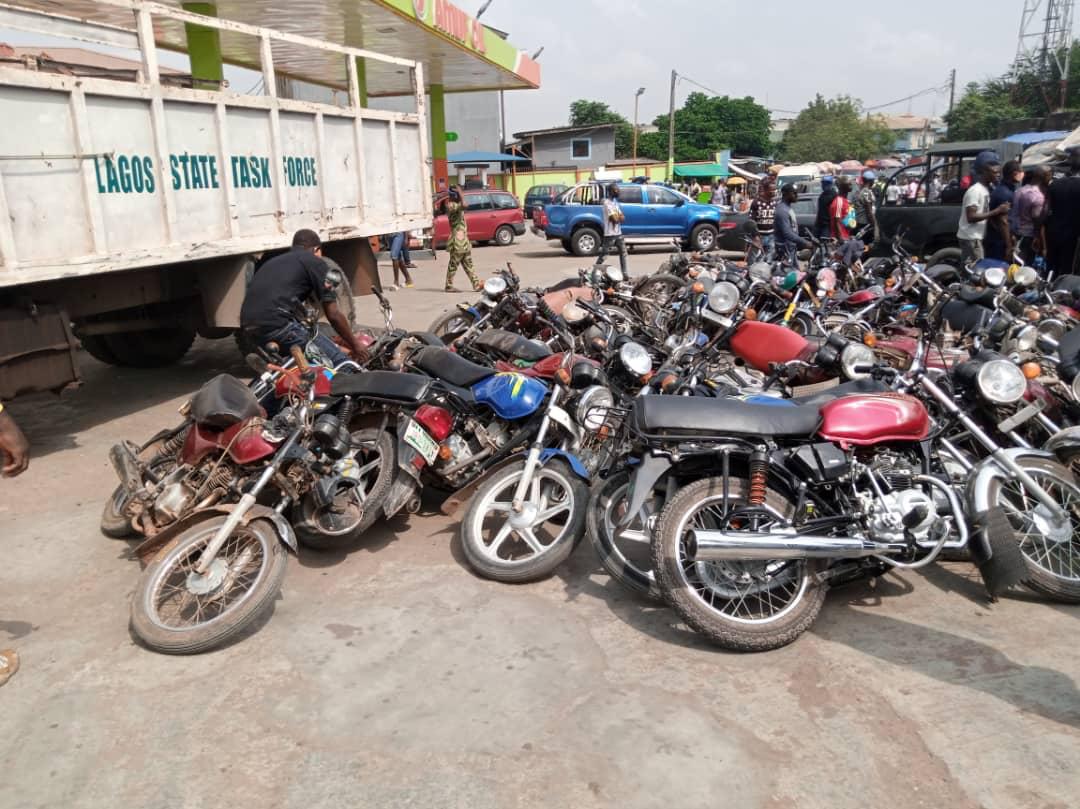society
10 PERSONS ARRESTED FOR ATTACKING LAGOS TASKFORCE OFFICERS, AS GOVT IMPOUNDS 96 COMMERCIAL MOTORCYCLES …Four Private Cars Confiscated for Driving Against Traffic




society
When Ramadan And Lent Meet : Prophet Genesis Calls For Peace Beyond Religion

When Ramadan And Lent Meet : Prophet Genesis Calls For Peace Beyond Religion
Prophet Genesis has described the rare convergence of Ramadan and Lent as “a divine reminder that humanity must choose peace over prejudice,” urging believers across faiths to see the sacred alignment as an opportunity for unity rather than division.
“There are moments in history that feel bigger than calendars, doctrines, or denominations,” he said. “When Ramadan and Lent align in the same season, it is not coincidence — it is a reminder that God’s sovereignty transcends religion, borders, and human systems.”
Ramadan, a sacred month in Islam, is marked by fasting, prayer, charity, and deep reflection. Lent, the Christian season leading to Easter, is devoted to fasting, repentance, sacrifice, and spiritual renewal.
Though observed in different faith traditions, both seasons call believers into humility, self-discipline, generosity, repentance, and closeness to God.
“Is it not powerful,” Prophet Genesis added, “that two major faiths — followed by billions around the world — enter a period of fasting and reflection at the same time? What seems separate to us is not separate to God.”
*What Is God Showing Us?*
According to the cleric, the alignment carries a spiritual message beyond ritual observance.
“When Ramadan and Lent come together, it feels like a divine whisper,” he said. “‘Slow down. Purify your heart. Love your neighbour. Seek Me sincerely.’”
Both seasons strip away excess — food, distractions, pride — and expose the condition of the heart. And in that stripping away, he noted, humanity discovers something profound: we are more alike than different.
Muslims fast from dawn to sunset.
Christians fast in various ways, giving up comforts.
Both give in charity.
Both pray more intentionally.
Both seek forgiveness.
“This convergence reveals that the core values God desires — mercy, discipline, compassion, humility — are universal,” he stated.
*Beyond Religion: Embracing Peace and Love*
In a time marked by global tension, economic hardship, displacement, and social division, Prophet Genesis stressed that religious hostility only deepens existing wounds.
“If sacred seasons themselves can align,” he asked, “why can’t we?”
Religion, he said, was never meant to divide humanity into hatred but to guide it toward righteousness. Yet history shows that faith is often used as a boundary instead of a bridge.
“When we choose peace over prejudice, love over labels, and understanding over suspicion, we reflect the very heart of God.”
He emphasised that discrimination weakens communities, division delays progress, and hatred blinds wisdom. By contrast, love strengthens society, peace builds nations, and unity multiplies impact.
For communities working closely with women and children across diverse nations and religious backgrounds, he added, peace is not optional — it is necessary for healing and empowerment.
*The Greater Lesson*
Perhaps, he suggested, the meeting of Ramadan and Lent carries a deeper reminder:
“You are one human family.
You were created by the same Creator.
Your shared humanity matters more than your differences.”
Faith, according to Prophet Genesis, should elevate character rather than inflate ego. True spirituality produces compassion, not condemnation.
“The power of this moment is not in theological debate,” he said. “It is in the opportunity for unity.”
When Muslims and Christians fast in the same season, neighbourhoods can pray for one another. Communities can share meals at sunset. Friends can check on each other’s well-being.
“This is how peace begins,” he concluded. “Not in global conferences, but in hearts.”
*A Call to Embrace Peace*
Prophet Genesis called on religious leaders, youth organisations, and families to use the sacred overlap as a practical platform for dialogue, mutual respect, and visible acts of kindness.
“Let us embrace one another beyond religion. Let us protect each other’s dignity. Let us teach our children love instead of suspicion.”
Because at the end of every fast — whether Ramadan or Lent — the true goal is transformation of the heart.
“And a transformed heart,” he said, “does not discriminate. It loves.”
society
Stop Means Stop”: Legal Experts Warn Ignoring ‘Stop’ During Intimate Acts Can Be Criminally Punishable

“Stop Means Stop”: Legal Experts Warn Ignoring ‘Stop’ During Intimate Acts Can Be Criminally Punishable
By George Omagbemi Sylvester | Published by SaharaWeeklyNG
“Grounded in international law and consent principles, legal authorities stress that continuing sexual activity after a partner withdraws consent may constitute sexual assault and lead to imprisonment.”
A growing body of legal interpretation and expert opinion reaffirm that consent in intimate encounters is not a one-off event but an ongoing requirement; withdrawn at any time by either participant. Legal practitioners and rights advocates are increasingly warning that if one partner clearly says “stop” during sexual activity and the other continues, this conduct can constitute a criminal offence with significant penalties, including imprisonment.
Consent must be “a voluntary agreement to engage in the sexual activity in question,” and crucially can be revoked at any stage. Once a partner expresses withdrawal of consent (by words like “stop” or by unmistakable conduct) the other party is legally obligated to cease all activity immediately. Failure to respect this is widely recognised in multiple legal jurisdictions as sexual assault or rape.
Professor Deborah Rhode, a prominent authority on legal ethics, has stated: “Respect for autonomy and bodily integrity lies at the core of consent law. Ignoring a partner’s withdrawal of consent undermines basic personal freedoms and is treated as a serious offence in criminal law.”
According to experts, this legal principle is not limited to strangers but applies equally to long-term partners and spouses. The Criminal Code in many countries explicitly rejects implied or blanket consent based on relationship status.
Human rights lawyer Amal Clooney has similarly emphasised that clear communication and mutual agreement are essential, and that “once consent is withdrawn, any continued sexual activity crosses the line into criminal conduct.”
This means that in places where consent law is well-established, ignoring an explicit “stop” can lead to charges of sexual assault, with courts interpreting such conduct as a violation of an individual’s autonomy and dignity.
The issue has gained media and legal attention in recent years across numerous jurisdictions (including Canada, parts of Europe, and reform discussions in U.S. states) as courts and legislatures clarify that sexual consent is continuous and revocable at any time. Although no globally consolidated database exists of individual cases tied specifically to a news report on this warning, reputable legal frameworks consistently reinforce that continuing after “stop” is unlawful.
The subject engages legal scholars, criminal law practitioners, human rights experts, and statutory bodies advocating sexual violence prevention. Law enforcement agencies and prosecutors may pursue charges when clear evidence shows that consent was withdrawn and ignored.
In practice, consent frameworks require that the person initiating or continuing sexual activity take reasonable steps to ensure ongoing affirmation of willingness. Silence, passive behaviour, or failure to stop when asked cannot substitute for ongoing consent.
In summary, the legal maxim is clear: verbal or unambiguous withdrawal of consent must be respected. Ignoring it shifts the encounter from consensual to criminal, potentially resulting in serious legal consequences including imprisonment.
society
Lagos Family Property Dispute Turns Violent After Death of Omotayo Ojo

Lagos Family Property Dispute Turns Violent After Death of Chief Omotayo Ojo
By Ifeoma Ikem
A festering family dispute over property has escalated into a series of violent attacks in Lagos, leaving residents of a contested apartment in fear for their safety.
Mrs. Omotayo-Ojo-Alolagbe (Nee Omotayo-Ojo) the third child and first daughter of the late Omotayo Ojo, has alleged repeated assaults and destruction of property by her siblings from her father’s other marriages.
According to her account, hostility against her began while her father was still alive, allegedly fueled by the affection and support he showed her. She claimed that tensions worsened after his death in 2019.
Mrs. Alolagbe stated that her late father had given her a particular apartment during his lifetime, assuring her she would not suffer hardship, especially after her husband left the marriage. She said the property became her primary source of livelihood and shelter.
However, she alleged that her siblings had sold off several other family properties and were determined to dispossess her of the apartment allocated to her by their father.
The dispute reportedly turned violent on Nov. 15, 2025, when unknown persons allegedly attacked the building. She said the incident prompted her to petition the Chief Judge of Lagos State and the Commissioner of Police.
Despite the pending legal proceedings, she alleged that another attack occurred on Jan. 21, 2026. During that incident, parts of the building were vandalised, including the walkway and the main gate, which was reportedly removed.
A third attack was said to have taken place on Feb.18, 2026, during which the roof, gates, and sections of the walkway were allegedly dismantled. Residents were reportedly assaulted, and some were allegedly forced to part with money under duress.
Tenants in the apartment complex are said to be living in fear amid the repeated invasions, expressing concern over their safety and uncertainty about further violence.
Mrs. Alolagbe alleged that the attacks were led by a man identified as Mr. Alliu, popularly known as aka “Champion,” whom she described as a political thug. She claimed he arrived with a group of about 50 men, allegedly brandishing weapons and breaking bottles to intimidate residents.
She further alleged that the group boasted of connections with senior police officers, politicians in Lagos State, and even the presidency, claiming they were untouchable.
According to her, some arrests were initially made following the incidents, but the suspects were later released. She expressed concern that the alleged perpetrators continue to threaten her, making it difficult for her to move freely.
She also disclosed that during a meeting on Feb. 23, 2026, an Area Commander reportedly told her that little could be done because the matter was already before a court of law.
The development has raised concerns about the enforcement of law and order in civil disputes that degenerate into violence, particularly when court cases are pending.
As tensions persist, residents and observers are calling on relevant authorities to ensure the safety of lives and properties ,while allowing the courts to determine ownership and bring lasting resolution to the dispute.
-

 celebrity radar - gossips6 months ago
celebrity radar - gossips6 months agoWhy Babangida’s Hilltop Home Became Nigeria’s Political “Mecca”
-

 society5 months ago
society5 months agoReligion: Africa’s Oldest Weapon of Enslavement and the Forgotten Truth
-

 society6 months ago
society6 months agoPower is a Loan, Not a Possession: The Sacred Duty of Planting People
-

 news7 months ago
news7 months agoTHE APPOINTMENT OF WASIU AYINDE BY THE FEDERAL GOVERNMENT AS AN AMBASSADOR SOUNDS EMBARRASSING








